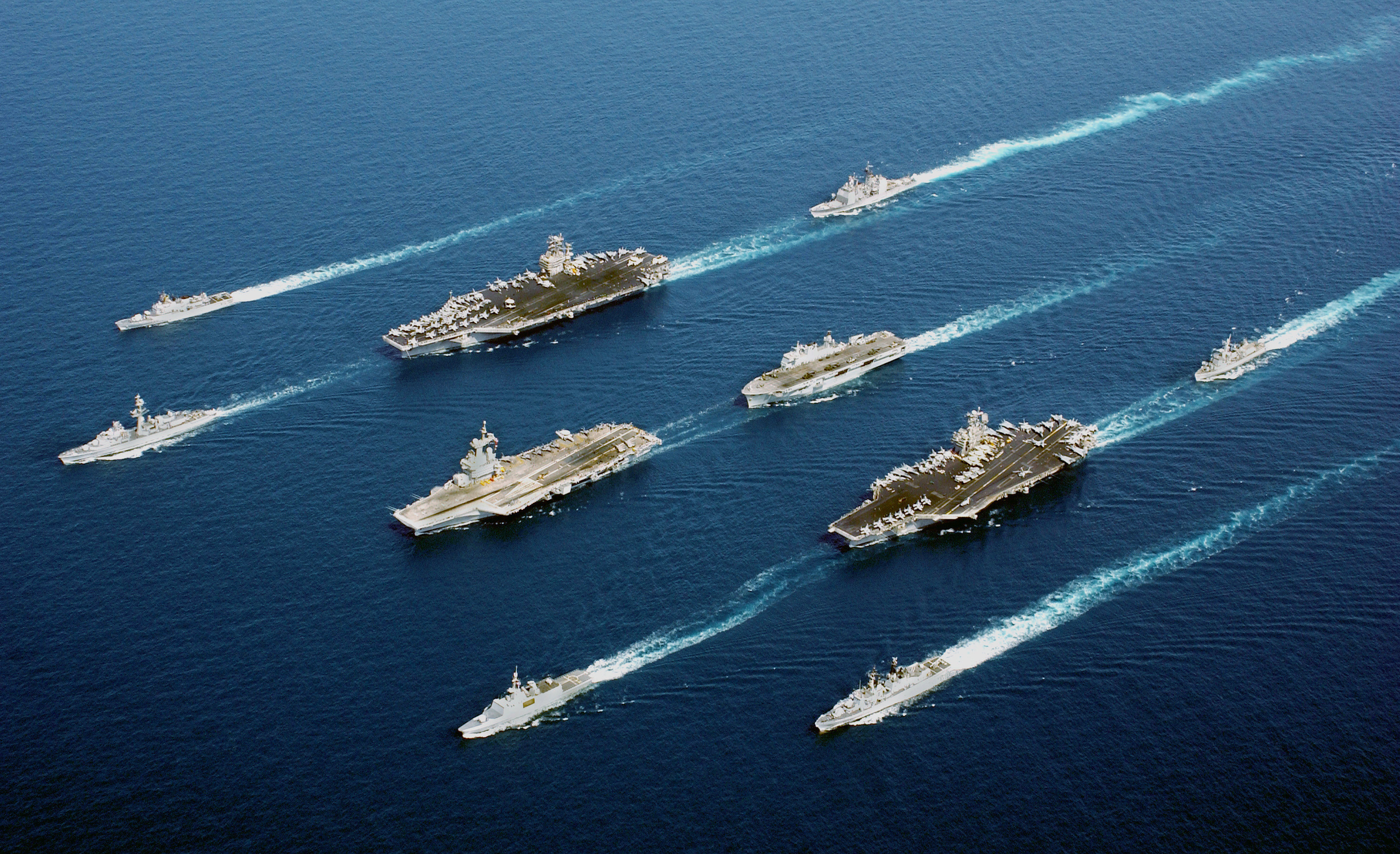I've seen this image shared quite a bit since Monday night's Presidential debate which focused (more-or-less) on foreign policy:
At the debate, both Romney and Obama had valid points at the root of their soundbite rhetoric. Romney argued that more ships offers greater capabilities (true), but his phrasing was off in that he made it sound like he was wondering why we don't have any battleships anymore. Obama stated that the scale and methods of warfare have changed (true) but appeared to dismiss that an increased naval presence helps support our ground and air forces, even if we don't have battleships lobbing huge shells at enemy battleships.
As most of my friends are pretty liberal, many are looking at that graphic as reason to justify cuts to the military -- we have more aircraft carriers than the rest of the world combined. Several commented that aircraft carriers are obsolete -- why are we spending so much money on keeping them around?
To be a slight dissenting voice- aircraft carriers do actually get frequent use, both for supply chains as well as combat. They provide mobile airports to areas where airports may be in short supply. Getting access to land-based airports is a tricky process: we may not have allies in an area, and land-based airports inherently mean that at some point you're flying over somebody else's airspace. If you come in from the sea: except for countries inaccessible to our ships, we can have direct air access without any need for another country's permission.
This is important for maintaining a supply chain, which might sound like a minor part of war; but I'd sooner argue it's the single most critical element. Most military tacticians and strategists throughout all of history have concurred that if you cut off the opponent's supply lines: you win the war. If you have a poor supply line you must expend greater resources (funds, materials, personnel, lives) and -- if you fall short -- your forces can be utterly unable to fight.
As air combat has become one of the primary theaters of war: aircraft carriers have become an integral part of the modern equation in fielding both reconnaissance as well as offensive capabilities. Aircraft carriers are not obsolete; in fact, they are precisely the reason that battleships have become obsolete. Aircraft supports our ground forces by striking without need of ground forces to begin with, and also providing aerial observation vital for the ground forces knowing what they're getting into.
Aircraft carriers field our modern offensive capabilities, replacing the battleships of yore. We now use smaller & more mobile defensive ships to protect the carriers. These configurations are better suited for combating smaller, more-mobile opponents. These recognise that the foreseeable future no longer shows much sign of massive naval battles between grande fleets of one sovereign state to another.
In the end I'm a bit more aligned with Obama on this issue, but mostly for reasons that should appeal to fiscal conservatives: the dern things are expensive; we'd fare better to take a more diplomatic approach to international affairs -- starting with recognising the root motivations of our adversaries rather than slapping on such expensive band-aid solutions. I'd criticize both candidates for being rather lacking on that element.
The fact of the matter is that if we're serious about cutting back on our national debt: both healthcare and warfare have to be significantly restructured; and I believe that in this specific case Obama offers the more fiscally conservative and efficient approach. But I would not so readily dismiss valid concerns from others that the fewer ships we have; the less responsive our military can be.
Tuesday, October 23, 2012
Subscribe to:
Posts (Atom)


.jpg)